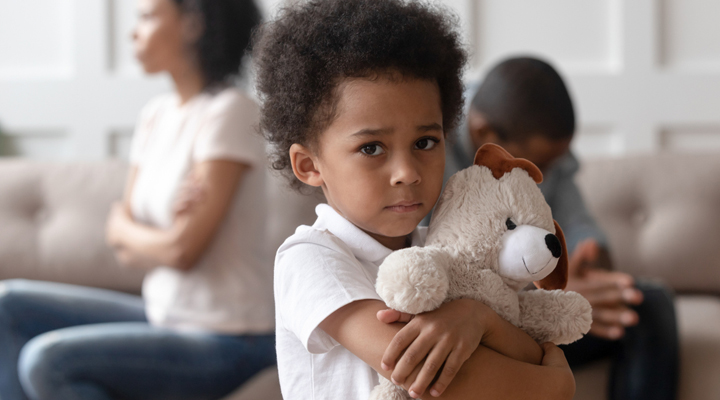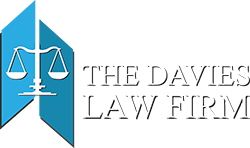For parents going through divorce or separation, nothing matters more than time with their children. One of the first questions we hear at The Davies Law Firm in Hackensack is: How do New Jersey courts decide child custody?
If you live in Bergen County or anywhere in NJ, here’s what you need to know about how custody and parenting time are determined — and why having the right legal representation makes such a difference.
Legal Custody vs. Physical Custody
In New Jersey, custody is divided into two main parts:
- Legal Custody: The right to make important decisions about your child’s education, health care, and upbringing.
- Physical Custody (Parenting Time): Where the child lives and how time is divided between parents.
Most cases result in joint legal custody, but physical child custody and parenting time vary based on circumstances.
What Do NJ Courts Consider When Deciding Child Custody?
Judges don’t automatically favor one parent over the other. Instead, they look at the best interests of the child. Factors include:
- Each parent’s ability to provide a stable home
- The child’s relationship with both parents
- The child’s educational, medical, and emotional needs
- The parents’ ability to cooperate and co-parent
- History of domestic violence, neglect, or substance abuse
- The child’s preference (if they are mature enough to express one)
Parenting Time in New Jersey
Parenting time — also called visitation — is designed to keep both parents actively involved in their child’s life. Common arrangements include:
- Shared Parenting: A near-equal schedule, often week-to-week or alternating days.
- Primary/Secondary Custody: One parent is the primary custodian, while the other has scheduled visitation.
- Supervised Parenting Time: Ordered when safety concerns exist.
At The Davies Law Firm, we help parents negotiate parenting plans that protect their rights while keeping their children’s best interests first.

Can Parents Create Their Own Custody Agreement?
Yes. Courts encourage parents to agree on custody and parenting time without a trial. But if parents can’t agree, a judge will make the decision after reviewing evidence. Having a lawyer guide these negotiations often makes the process faster, less stressful, and more favorable to you.
Modifying Custody in New Jersey
Child custody arrangements aren’t always permanent. If circumstances change — such as relocation, changes in a child’s needs, or safety concerns — you can request a custody modification. The court will again evaluate the child’s best interests.
Why Legal Help Matters in Child Custody Cases
Child custody disputes are some of the most emotionally charged and complex areas of family law. Without legal guidance, it’s easy to lose sight of both your rights and your child’s long-term best interests. Here’s why representation matters:
1. Protecting Your Parental Rights
Judges aim to serve the child’s best interests, but without an attorney, you risk ending up with an arrangement that limits your parenting time or decision-making authority. A lawyer makes sure your role as a parent is clearly represented and protected.
2. Understanding the Legal Standards
New Jersey courts evaluate dozens of factors. An attorney knows how judges weigh those factors and can present your case in the strongest light.
3. Avoiding Costly Mistakes
It’s natural to let emotions take over, but child custody battles require clear strategy. A lawyer helps you avoid missteps — like making negative comments about your ex in court, failing to provide complete financial information, or agreeing to an unfair schedule just to “end the fight.”
4. Negotiating Fair Parenting Plans
Courts prefer parents to settle child custody disputes outside of trial. With legal help, you can reach an agreement that protects your parental rights while minimizing conflict.
5. Preparing for Court if Necessary
If trial is unavoidable, having an experienced attorney is essential. From presenting evidence to cross-examining witnesses, your lawyer builds the strongest case possible for why your child custody arrangement benefits your child.
6. Handling Modifications and Enforcement
When circumstances change or your ex fails to follow the agreement, your lawyer can quickly file for modification or enforcement, protecting your rights and your child’s stability.
Common Mistakes Parents Make Without a Lawyer
Parents who try to handle custody disputes alone often run into problems that hurt their case long-term. Some of the most common mistakes include:
- Agreeing to unfair terms just to end the process quickly
- Failing to document financial and caregiving contributions
- Making negative statements about the other parent in court or online
- Not understanding how the “best interests of the child” standard is applied
- Failing to request modifications when circumstances change
These mistakes can reduce parenting time, weaken your legal standing, or damage your credibility with the judge. Having a lawyer helps you avoid them from the start.
Why It Matters Right Now
If you’re already in the middle of a custody dispute — or if you’re preparing for one — the steps you take today will directly affect your child’s future and your relationship with them. The earlier you seek legal advice, the stronger your position will be.
At The Davies Law Firm in Hackensack, we combine local experience with compassionate representation to fight for custody arrangements that protect both your rights and your child’s well-being.Call us today at (201) 820-3460 to schedule your consultation and start building your custody case with confidence.





